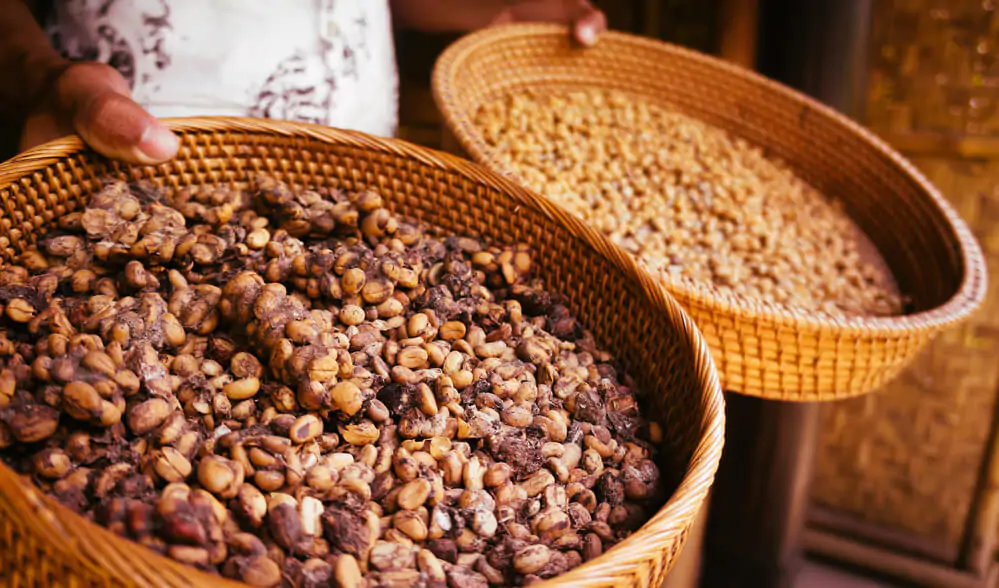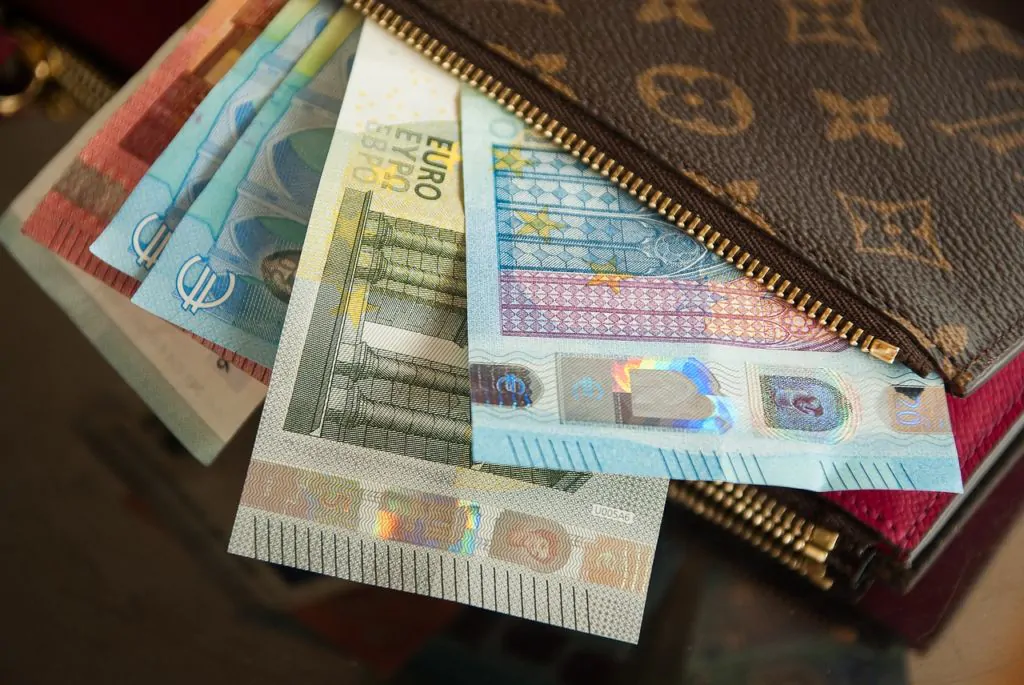Many exotic coffees are available are the market today, but are you familiar with coffee monkey poop? Is it really poop? Read to find out more!

From beans harvested in exotic locales to organic blends, the coffee market is filled with enough diversity to fulfill the desires of every discerning coffee connoisseur around the world.
However, no coffee type stands out more than coffee that has been fermented in the digestive tract of an animal and then pooped or spat out, a process that ferments the beans to create an extraordinary cup of coffee, such as coffee monkey poop. You might also be wondering, what is Yuban coffee?
What is Coffee Monkey Poop?
Unlike Kopi Luwak (civet poop coffee), elephant poop coffee, and bird poop coffee, monkey poop coffee is not another type of animal poop coffee. Instead of being consumed and defecated as these other types of coffee, monkey poop coffee should actually be called “monkey spit coffee” and is often referred to as “monkey parchment coffee.”
It’s created when the Formosan rock macaque monkey or the rhesus monkey chews the coffee cherries, removing most of the fruit’s flesh from the beans, and then spits out the coffee bean, much the same as a person would eat a cherry and spit out the pit.
Rather than being intestinally fermented as are other animal poop coffees, the coffee beans undergo an entirely different process to create the flavorful beverage many coffee aficionados adore.
When the Macaques spit out the coffee cherry’s pit — the coffee bean itself, digestive enzymes from the monkey’s saliva begin to break down and change the coffee bean’s chemical composition.
The coffee bean never enters the monkey’s digestive system and is not “pooped” out, therefore, it would be classified as “animal processed” coffee rather than animal poop coffee.
You might also be interested in our Barako coffee and our Typica coffee guides.
Taste of Monkey Coffee
The monkeys are instinctively drawn to the ripest, juiciest, and sweetest of fruit. This means that the beans they spit out create a delicious and high-grade coffee. According to Spruce Eats, monkey coffee has a sweet, complex taste with a full spectrum of coffee flavor notes that include citrus, nuts, and chocolate but is predominately vanilla.
It has a heavy body and a minimal amount of bitterness.
Most coffee enthusiasts would describe monkey coffee as having the perfect amount of acidity. Its caffeine content is contingent on factors that affect all coffees, from the brewing method to the type of roast to the variety of coffee grown. Monkey coffee typically comes in a light to medium roast – the darker the roast, the less caffeine.
Is Monkey Poop Coffee Safe?
Although the coffee cherries have been in the monkey’s mouth, the beans are not affected. But is it safe?
Yes. After the beans are painstakingly collected by harvesters, the parchment surrounding the bean is removed and the beans are thoroughly cleaned, processed, dried, roasted at high temperatures, and then brewed with near-boiling water.
Check out our Mundo Novo coffee guide.
Buying Monkey Coffee

Like other animal poop coffees, monkey coffee is expensive and hard to find. Making it even more difficult is the fact that many coffee companies have incorporated the word “monkey” into their brand names. An Amazon or Google search for “monkey coffee” often results in “monkey” branded coffees.
Its production is dependent on environmental factors and monkeys making it scarce and often unavailable. There are not many monkey coffee producers, and those that do, often produce far less than a hundred pounds a year. When it can be found, monkey coffee sells for several hundred dollars a pound, resulting in cups of coffee costing around $10.
A search for “monkey parchment coffee” often has better results. Monkey coffee can occasionally be purchased through high-end coffee retailers and specialty coffee roaster websites such as:
- Kingsman Coffee
- Indian Bean Co.
- Bean Deck
- Let’s Kauphy
Final Word on Coffee Monkey Poop
The cultivation of coffee made from fruit that has been chewed and spit out by monkeys is a fairly recent practice. Beginning in the early 2000s, a few producers started collecting the chewed beans, creating a specialty coffee similar to civet poop coffee. The monkey’s digestive enzymes modify the coffee beans, which then create a rare specialty coffee.
What makes this coffee utterly unique is its production method … harvesting coffee beans that an animal has chewed on and spit out. If you are visiting a coffee-producing country where the Formosan rock macaque monkey or the rhesus monkey is native, you might want to search out a cup of joe made all the better because of the addition of monkey spit.
FAQs About Coffee Monkey Poop
What is the most expensive coffee in the world?
The most expensive coffee in the world is Kopi Luwak coffee or Civet Cat Coffee. It can cost as much as $100 for a single cup. Considering that an average cup of Starbucks coffee can cost around $3, that means that a cup of Kopi Luwak can cost the equivalent of 33 cups of Starbucks coffee.
It is estimated that more than 80% of all civet cat coffee being sold is fake.
Why is Kopi Luwak so expensive?
Kopi Luwak, also known as Civet Coffee, was the first type of animal poop coffee to be discovered and is, therefore, the most well-known type of animal poop coffee. The coffee is made from coffee beans that have passed through the digestive system of the Asian palm civet cat. The civet lives in a small area of the world — the dense forests of Southeast Asia.
Civets are omnivores and eat a wide range of foods, from insects to small mammals, snakes, and lizards to fruits such as mango, rambutan, and coffee cherries. Civets have discerning tastes and have developed the ability to choose only the highest quality of coffee cherries to consume. Kopi Luwak farmers gather large quantities of civet feces hoping to find dried coffee beans in the animal’s scat.
The beans are then sorted from all the other parts of the civet’s poop, washed, dried, parchment/skin removed, and then finally roasted. All these reasons add up to scarcity that is then coupled with a high demand which leads to the exorbitant price people are willing to pay for one special cup of coffee.
